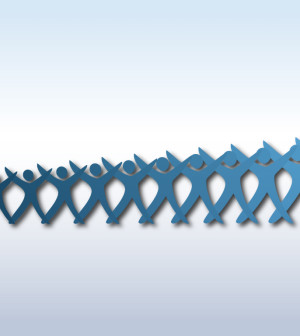- Could Your Grocery Store Meat Be Causing Recurring UTIs?
- Are You Making This Expensive Thermostat Error This Winter?
- Recognizing the Signs of Hypothyroidism
- 10 Strategies to Overcome Insomnia
- Could Artificial Sweeteners Be Aging the Brain Faster?
- Techniques for Soothing Your Nervous System
- Does the Water in Your House Smell Funny? Here’s Why
- Can a Daily Dose of Apple Cider Vinegar Actually Aid Weight Loss?
- 6 Health Beverages That Can Actually Spike Your Blood Sugar
- Treatment Options for Social Anxiety Disorder
Women Chasing Holiday Perfection May Miss Signs of Heart Trouble

Holiday pressure can stress anybody out, but some women get so anxious about making everything perfect that they miss the signs of serious heart problems.
One of those threats is a so-called “silent heart attack.”
“Most of the time people who are experiencing a heart attack will have pain in the chest, shortness of breath, etc. Silent heart attack symptoms might be as simple as indigestion, flu-like symptoms, or feeling discomfort like a pulled muscle in the chest or back,” said Dr. Karla Kurrelmeyer, a cardiologist at Houston Methodist DeBakey Heart & Vascular Center.
It’s important to have these symptoms checked as soon as possible to avoid scarring or damage to the heart, she said in a hospital news release.
Another condition, known as stress-induced cardiomyopathy, can strike women when they’re under great stress and hit with a traumatic life event like the death of a loved one.
“Stress-induced cardiomyopathy is a weakening of the left ventricle, the heart’s main pumping chamber,” Kurrelmeyer said. “It is brought on by the release of stress hormones that shock the heart, causing changes in the heart muscles that then cause the left ventricle to not work properly. The vast majority of people who are affected by this condition are women in the late 50s to mid-70s.”
People with the condition may have chest pains or shortness of breath after significant emotional or physical stress, she said. If you have these symptoms, you need an echocardiogram. Medications such as beta blockers or ACE inhibitors are used to treat the condition, she added.
Spikes in blood pressure are also common around the holidays. They can cause chest pains, palpitations or even stroke. Women with a history of high blood pressure should carefully monitor their levels, Kurrelmeyer said.
She added that symptoms of heart attack in women typically aren’t as obvious as in men. They can include:
- Extreme weakness, anxiety and shortness of breath.
- Discomfort, pressure, heaviness or pain in the chest, arm, below the breastbone or in the middle of the back.
- Sweating, nausea, vomiting and dizziness.
- Fullness, indigestion and a tightness in the throat area.
- Rapid or irregular heart beat.
“It’s important to take time for yourself during the holiday season and do things that will help relieve your stress,” Kurrelmeyer said. “Exercise, either walking or running, yoga, meditation, a nice walk with a loved one, whatever it takes, make it happen. The holidays should be a joyous time spent with family and friends at home, not with doctors in an emergency room.”
More information
For more about women and cardiac health, visit the National Heart, Lung, and Blood Institute.
Source: HealthDay
Copyright © 2026 HealthDay. All rights reserved.










